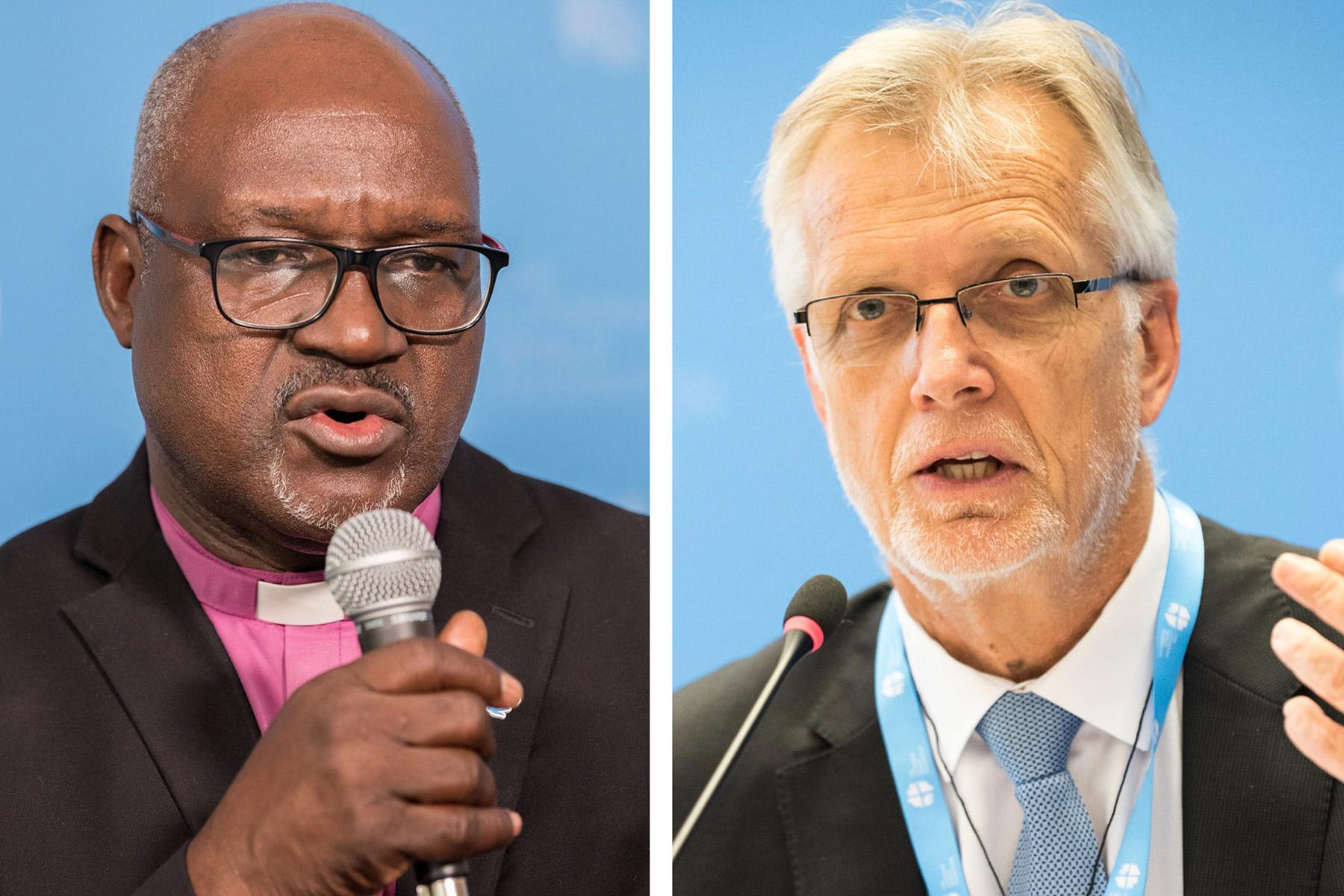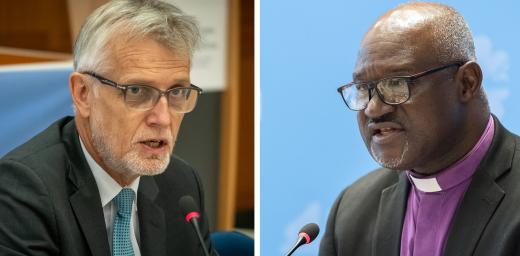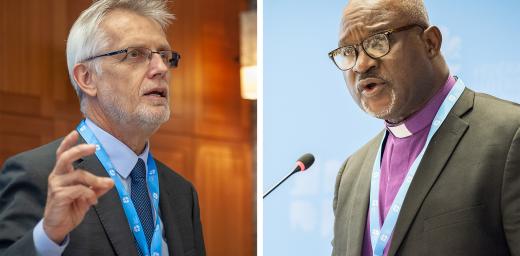COVID-19: Solidarity and cooperation should know no borders

Composite photo. LWF President Musa and General Secretary Junge say solidarity and cooperation must know no boundaries, as COVID-19 spreads across borders. Photos: LWF/A. HillertÂ
LWF leaders: World does not need stigmatization, xenophobia or apocalyptic prophesies
(LWI) - In the face of a pandemic that knows no national borders, Lutheran leaders are asking churches to respond by increasing dialogue, discernment, cooperation and solidarity with the most vulnerable.
A letter sent by Lutheran World Federation (LWF) President Archbishop Dr Panti Filibus Musa and General Secretary Rev. Dr Martin Junge reiterates the call for all member churches to follow public health guidelines, while also condemning stigmatization and inviting people to support those most severely challenged by the Coronavirus (COVID-19) disease.
The letter, sent to member churches this week, speaks of “great concern” about communities that continue to physically gather for worship in the mistaken belief that they are somehow immune to infection. It notes that the story of Jesus’ temptation in the wilderness “helps us understand that faith should never lead to testing and tempting God’s power.” Instead, it says, our faith "empowers us to go through this time of trial with hope and with a loving heart towards those most vulnerable to COVID-19 and its consequences.”
“God does not speak through a virus”
Addressing the problem of apocalyptic prophesies and end-of-time predictions, the LWF leaders say the tendency to see the pandemic as God’s punishment has already led to a rise in hostilities, xenophobia and the persecution of ethnic or other minorities groups, falsely seen as the source of God’s anger. Stressing that God does not speak through a virus, but through Jesus Christ, as revealed in Scripture, the LWF leaders insist: “The world does not need stigmatization and violence, it needs cooperation and solidarity.”
The story of the risen Christ unexpectedly standing among his disciples, who were sitting in a room, behind locked doors because of fear” seems “as if it was written for us today.
Acknowledging the pain of isolation and deprivation felt by those who cannot regularly receive Holy Communion, Musa and Junge call for dialogue between pastors and bishops or presidents so that they can engage in “deep theological discernment” and jointly respond to the “pastoral, confessional and ecumenical dimensions” of the crisis. They note that the LWF Communion Office is developing material for the Triduum and other resources which can be used by churches to experience a deeper sense of communion within the global Lutheran family.
Global solidarity needed
Inviting member churches to accompany and support the most vulnerable at this time of crisis, the LWF President and General Secretary say solidarity and cooperation must know no boundaries, as the virus spreads across borders to countries where people face huge challenges to protect themselves from infection. This unprecedented situation requires unprecedented and decisive action, the two leaders say.
The letter concludes with a reflection on “the story of the risen Christ unexpectedly standing among his disciples, who were sitting in a room, behind locked doors because of fear.” The story seems “as if it was written for us today,” the LWF leaders say, recalling that the risen Lord calls his disciples to “resume their faith journey,” as “witnesses of love and compassion, of service, of freedom and liberation – in God’s name.”
Read the letter
English | German | Spanish | French





